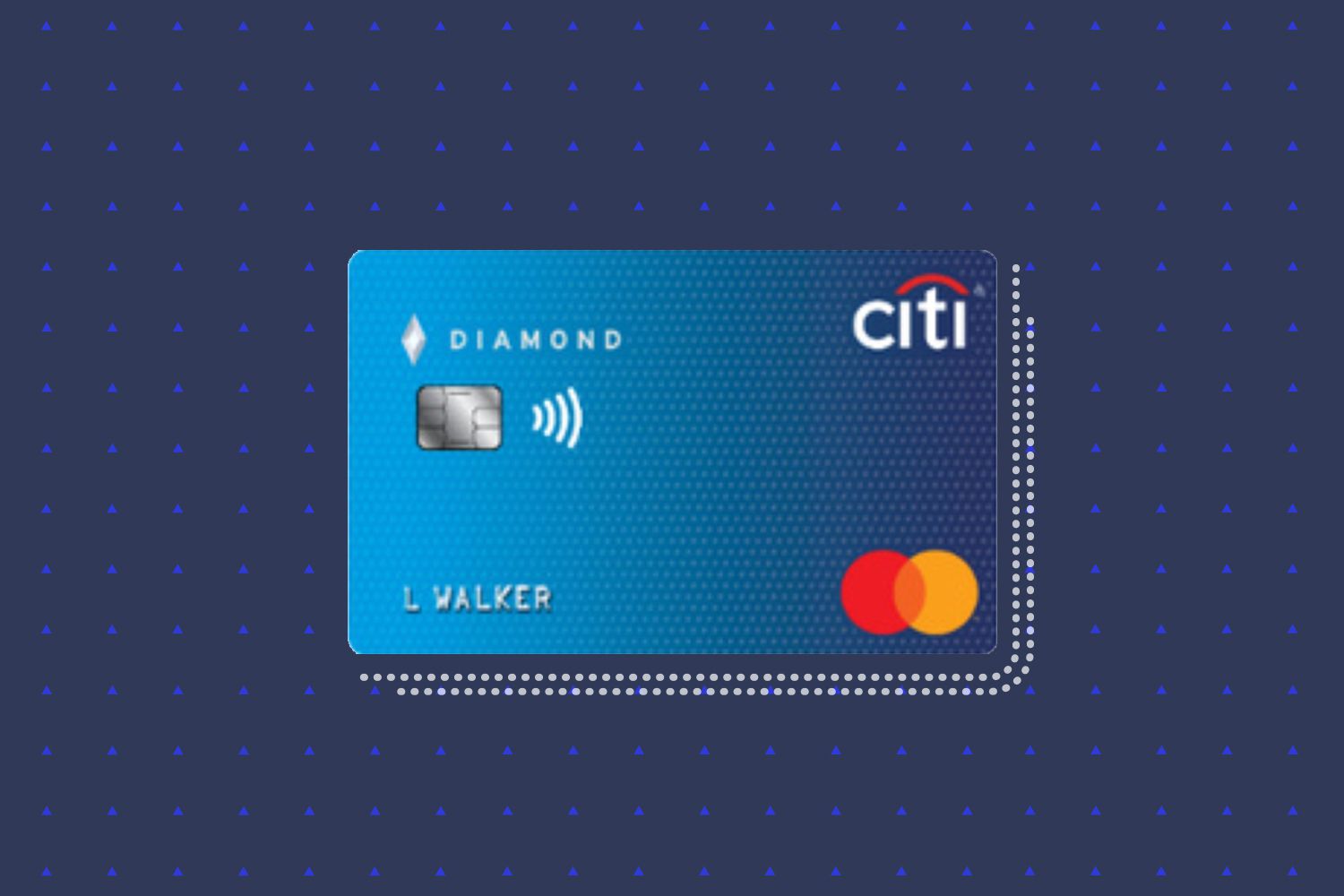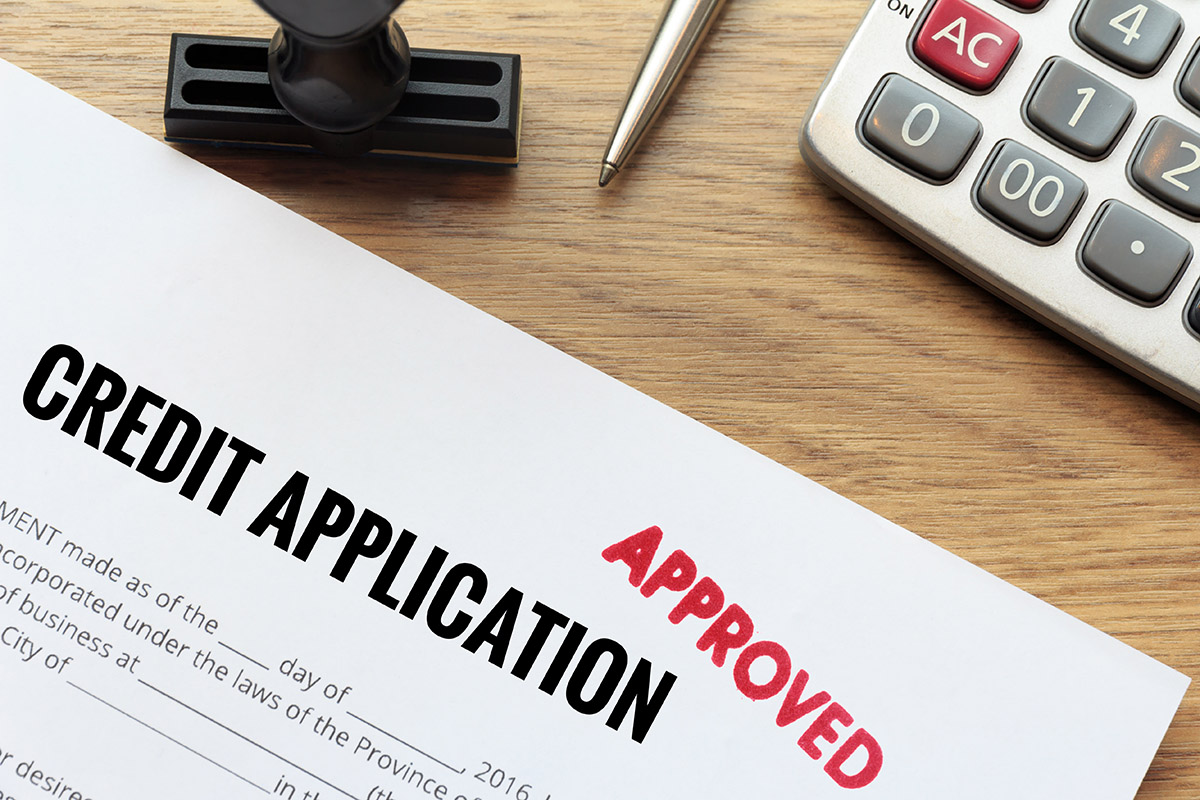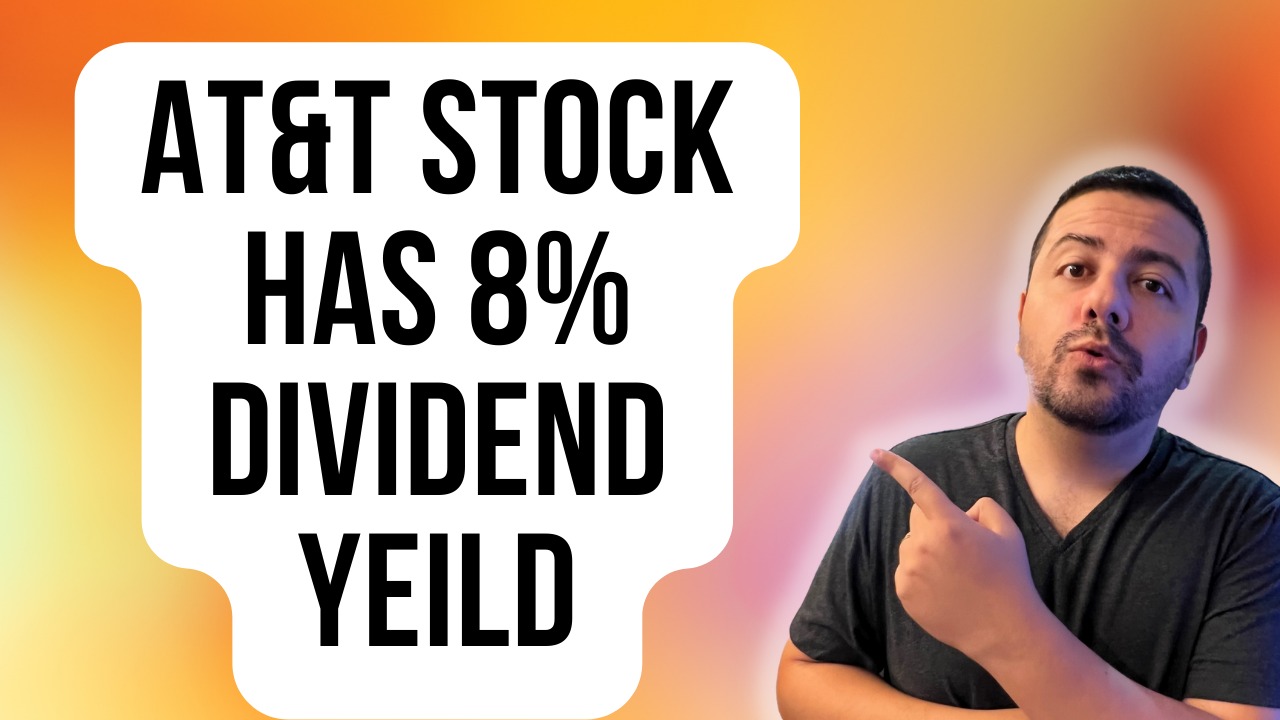

Finance
When Should I Get A Second Credit Card
Modified: December 29, 2023
Looking to improve your finance? Discover when is the right time to get a second credit card and how it can benefit your financial situation.
(Many of the links in this article redirect to a specific reviewed product. Your purchase of these products through affiliate links helps to generate commission for LiveWell, at no extra cost. Learn more)
Table of Contents
- Introduction
- Benefits of Having a Second Credit Card
- Factors to Consider before Getting a Second Credit Card
- Signs that Indicate It’s Time for a Second Credit Card
- How to Choose the Right Second Credit Card for You
- Pros and Cons of Having Multiple Credit Cards
- Tips for Managing Multiple Credit Cards Effectively
- Conclusion
Introduction
When it comes to managing finances, having a credit card can be a useful tool. It allows you to make purchases without having to carry cash, provides convenience for online shopping, and helps build your credit history. But have you ever wondered if one credit card is enough? Should you consider getting a second credit card?
While having one credit card may be sufficient for some individuals, getting a second credit card can offer several benefits. It can provide financial flexibility, improve your credit utilization ratio, and offer additional rewards and perks. However, before jumping into the decision of getting a second credit card, it is important to consider a few factors and evaluate your personal financial situation.
In this article, we will explore the benefits of having a second credit card, the factors to consider before getting one, and how to choose the right card for your needs. We will also discuss the pros and cons of having multiple credit cards and provide tips on managing them effectively. By the end, you will have a better understanding of whether or not getting a second credit card is the right move for you.
Benefits of Having a Second Credit Card
Getting a second credit card can offer a range of benefits that can positively impact your financial life. Here are some key advantages to consider:
- Financial Flexibility: Having a second credit card can provide you with additional purchasing power. It allows you to spread your expenses across multiple cards, which can be especially helpful if you have a large purchase or unexpected expenses. This can help you manage your cash flow more effectively and avoid maxing out a single credit card.
- Improved Credit Utilization Ratio: Your credit utilization ratio is the amount of credit you’re currently using compared to your overall credit limit. By having a second credit card and spreading your expenses, you can keep your credit utilization ratio lower. This can have a positive impact on your credit score and show lenders that you’re responsible with your credit.
- Expanded Rewards and Perks: Different credit cards offer varying rewards and perks. By having a second credit card, you can take advantage of a wider range of benefits. For example, one card might offer cashback on groceries and gas, while another card might offer travel rewards or discounts at specific retailers. This allows you to maximize your rewards based on your spending habits and preferences.
- Better Financial Management: Having two credit cards gives you the opportunity to separate your expenses into different categories. For example, you can use one card strictly for everyday expenses and the other for travel or emergencies. This can make it easier to track your spending and budget effectively, providing you with a clearer financial picture.
- Enhanced Security: Carrying a backup credit card provides an extra layer of security. If one card gets lost, stolen, or compromised, you’ll have another card to rely on while you sort out the issue. This ensures that you’re not left without a means to make purchases or handle emergencies.
It’s important to note that the benefits of having a second credit card can vary depending on your individual circumstances and financial goals. It’s essential to evaluate your financial situation and consider these benefits in relation to your specific needs before making a decision.
Factors to Consider before Getting a Second Credit Card
While the idea of having a second credit card may be enticing, it’s important to carefully consider a few factors before making the decision. Here are some key considerations to keep in mind:
- Current Financial Situation: Assess your current financial situation to determine if you’re capable of managing an additional credit card. Consider factors such as your income, existing debts, and ability to make timely payments. It’s crucial to have a stable financial foundation before taking on additional credit.
- Credit Score: Understand the impact of opening a new credit card on your credit score. The application process typically involves a hard inquiry, which can lower your score temporarily. Additionally, having a higher number of credit cards may affect your creditworthiness in the long run. Be cautious if you’re planning to apply for a major loan, such as a mortgage, in the near future.
- Annual Fees and Interest Rates: Consider the costs associated with the new credit card. Some cards have annual fees, which can eat into the potential benefits. Additionally, evaluate the interest rates offered by the card to ensure they are competitive and align with your repayment habits.
- Spending Habits and Rewards: Evaluate your spending patterns and determine if the rewards and perks provided by the new credit card align with your lifestyle. If the card offers rewards on categories you rarely spend on, it may not be the best fit for you. Look for a card that complements your spending habits and offers rewards that are useful to you.
- Additional Credit Card Benefits: Consider other benefits provided by the card issuer, such as travel insurance, purchase protection, or extended warranties. Determine if these additional perks align with your needs and if they make the card more valuable to you.
- Credit Card Terms and Conditions: Read the fine print of the credit card agreement. Pay attention to details such as interest rates, balance transfer fees, late payment fees, and any other terms that might impact your overall experience with the card. Understanding the terms and conditions will help you avoid any surprises down the road.
By carefully evaluating these factors, you can determine if getting a second credit card is a wise decision for your financial situation. It’s essential to strike a balance between the potential benefits and the potential costs or risks associated with having multiple credit cards.
Signs that Indicate It’s Time for a Second Credit Card
While having one credit card may be sufficient for some individuals, there are certain signs that suggest it’s time to consider getting a second credit card. Here are some indications that you may benefit from having an additional card:
- Maxing out your credit limit: If you frequently find yourself reaching the credit limit on your existing card, it may be a sign that you need a higher credit limit to accommodate your expenses. Having a second credit card can help distribute your purchases and prevent maxing out a single card, which can impact your credit score.
- Need for better rewards: If you feel that your current credit card’s rewards program is not aligning with your spending habits or providing enough benefits, it may be time to explore other options. Getting a second credit card with a different rewards structure can help you maximize your rewards potential and take advantage of offers that better suit your needs.
- Desire for separate expenses: If you’re struggling to keep track of different types of expenses, having multiple credit cards can provide a solution. For example, you can use one card for everyday expenses like groceries and bills, and another card specifically for travel expenses. This separation can help you budget more effectively and simplify expense tracking.
- Travel plans: If you’re a frequent traveler or planning a big trip, having a second credit card that offers travel rewards and benefits can be advantageous. Travel-specific credit cards often provide perks such as airport lounge access, travel insurance, and discounted hotel stays. This can enhance your travel experience and save you money in the long run.
- Increase credit score: If you have a limited credit history or a lower credit score, getting a second credit card and using it responsibly can help improve your credit profile. By making timely payments and keeping your credit utilization ratio low, you can establish a positive payment history and boost your overall creditworthiness.
Remember, these signs are general indicators, and your individual circumstances may vary. Before deciding to get a second credit card, carefully evaluate your financial goals, spending habits, and credit needs. Consider how an additional card can address your specific requirements and align with your long-term financial plans.
How to Choose the Right Second Credit Card for You
Choosing the right second credit card requires careful consideration and research. Here are some key factors to keep in mind when selecting the right card for your needs:
- Identify your spending patterns: Take a closer look at your spending habits and determine where you spend the most. Are you someone who spends a significant amount on groceries and dining out? Or do you frequently travel? Understanding your spending patterns will help you choose a card that offers rewards and benefits that align with your lifestyle.
- Evaluate rewards programs: Compare the rewards programs offered by different credit cards. Look for cards that offer rewards in categories you frequently spend on. For example, if you spend a lot on gas and transportation, a card that offers bonus rewards in those categories may be the best fit.
- Consider annual fees: Some credit cards charge an annual fee for the benefits and rewards they provide. Evaluate whether the annual fee is worth the rewards and perks offered by the card. If the benefits outweigh the fee, it may still be a good choice for you.
- Interest rates and fees: Pay attention to the interest rates charged by the credit card and any additional fees, such as balance transfer fees or foreign transaction fees. Compare these rates and fees among different cards to ensure you’re getting the best deal.
- Additional benefits and protections: Look beyond rewards and consider the additional benefits and protections provided by the card issuer. This could include features like purchase protection, extended warranties, travel insurance, or concierge services. Assess whether these extra benefits add value to your overall credit card experience.
- Review the terms and conditions: Read the terms and conditions of the credit card carefully. Pay attention to factors such as the grace period, late payment fees, and any other terms that may impact your experience with the card. Understanding the terms will help you avoid any surprises down the line.
- Compare customer reviews and ratings: Research customer reviews and ratings of the credit cards you are considering. This can provide insights into the customer service quality, ease of use, and overall satisfaction of cardholders. Look for cards with positive reviews and high ratings.
Remember, the right second credit card for you will depend on your individual needs, spending habits, and financial goals. Take the time to compare and analyze different options to ensure you select a card that provides the most value and aligns with your specific requirements.
Pros and Cons of Having Multiple Credit Cards
Having multiple credit cards can offer advantages, but it’s important to consider the potential drawbacks as well. Here are some of the pros and cons to consider:
Pros:
- Financial flexibility: With multiple credit cards, you have access to a higher total credit limit, which can provide financial flexibility for larger purchases or unexpected expenses.
- Improved credit utilization: By spreading your expenses across multiple cards, you can keep your credit utilization ratio lower, which is a key factor in credit score calculations. This can positively impact your creditworthiness.
- Diversification of rewards and benefits: Each credit card may offer different rewards programs, perks, and benefits. By having multiple cards, you can take advantage of a wider range of rewards, such as cashback, travel rewards, and discounts at specific retailers.
- Separation of expenses: With multiple credit cards, you can allocate specific expenses to different cards. This can help with budgeting and tracking expenses more efficiently, especially if you use separate cards for different categories like everyday expenses, travel, or emergencies.
- Backup in case of card issues: If one of your cards gets lost, stolen, or compromised, having a second card allows you to continue making purchases while you sort out the issue. This provides peace of mind and ensures you’re not left without a means of payment.
Cons:
- Increased temptation to overspend: Having multiple credit cards can increase the temptation to overspend, especially if you’re not disciplined with your finances. It’s crucial to maintain responsible spending habits and only use credit cards for expenses within your means.
- Higher possibility of debt accumulation: If you’re not careful, having multiple credit cards can result in accumulating debt. It’s important to make timely payments, keep track of balances, and avoid carrying high balances across multiple cards to prevent debt from spiraling out of control.
- Annual fees and costs: Multiple credit cards can mean multiple annual fees to consider. It’s essential to evaluate the costs associated with each card, including annual fees, interest rates, and any additional fees, to ensure the benefits outweigh the expenses.
- Managing multiple due dates: With multiple credit cards, you’ll have to keep track of multiple due dates. Missing any payment deadlines could result in late fees and negatively impact your credit score. It requires increased organization and discipline to manage multiple payment schedules.
- Potential impact on credit score: Opening multiple credit cards within a short period of time can result in multiple hard inquiries on your credit report, which may temporarily lower your credit score. Additionally, having a higher number of credit cards may impact your credit utilization ratio and creditworthiness in the eyes of lenders.
Before deciding to have multiple credit cards, carefully weigh the pros and cons to determine if the benefits outweigh the potential drawbacks. It’s important to ensure you have the financial discipline and organizational skills to manage multiple cards responsibly.
Tips for Managing Multiple Credit Cards Effectively
Managing multiple credit cards can seem overwhelming, but with the right approach, it can be done effectively. Here are some tips to help you stay on top of your multiple credit cards:
- Stay organized: Keep track of your credit cards, payment due dates, and balances. Create a spreadsheet, use a budgeting app, or set up alerts to ensure you never miss a payment and can easily monitor your spending.
- Create a payment plan: Develop a payment plan that works for you. Consider paying off cards with the highest interest rates or highest balances first, or prioritize paying off cards with promotional offers to avoid interest charges.
- Automate payments: Set up automatic payments for the minimum due or the full balance to avoid late fees and negative impacts on your credit score. Just ensure you have enough funds in your bank account to cover the payments.
- Monitor your credit utilization ratio: Keep your credit utilization ratio low by spreading your expenses across your cards. Aim to keep your credit utilization below 30% of your available credit limit on each card and overall.
- Regularly review your statements: Review your credit card statements diligently to catch any errors or unauthorized charges. Report any discrepancies to your credit card issuer promptly to protect yourself against fraudulent activities.
- Take advantage of rewards: Maximize the benefits of each credit card’s rewards programs. Use the cards that offer the most rewards for specific categories of spending and redeem your rewards in a timely manner to maximize their value.
- Be cautious with credit card applications: Avoid constantly applying for new credit cards, as multiple applications within a short period can negatively impact your credit score. Only apply for cards that align with your spending patterns and financial goals.
- Regularly review your credit report: Check your credit report regularly to ensure accuracy and identify any potential issues. You are entitled to one free credit report per year from each of the major credit reporting agencies.
- Consider consolidating balances: If you find it challenging to manage multiple credit cards and their balances, you may consider consolidating your balances onto one card with a lower interest rate or utilizing a balance transfer option.
- Practice responsible spending habits: Finally, remember that having multiple credit cards does not mean you should overspend. Stick to your budget, use credit cards responsibly, and only make purchases that you can comfortably afford to pay off.
By implementing these tips, you can effectively manage multiple credit cards and optimize the benefits they provide while avoiding pitfalls such as high interest charges and missed payments.
Conclusion
Deciding whether to get a second credit card is a personal choice that should be based on your financial goals, spending habits, and overall financial health. While having multiple credit cards can offer benefits such as increased financial flexibility, improved credit utilization, and access to diverse rewards programs, it’s important to assess the potential drawbacks as well.
Before getting a second credit card, carefully evaluate your financial situation, credit score, and the terms and conditions of the cards you’re considering. Consider factors such as annual fees, interest rates, rewards programs, and additional benefits. This will ensure you choose the right card to align with your needs and goals.
To effectively manage multiple credit cards, stay organized, automate payments, monitor your credit utilization ratio, and review your statements regularly. Take advantage of the rewards each card offers while practicing responsible spending habits to avoid accumulating unnecessary debt.
Remember, the decision to get a second credit card should be based on your individual circumstances and financial objectives. It’s crucial to weigh the benefits and drawbacks while taking into account your ability to manage multiple cards responsibly.
By making an informed decision and implementing effective management strategies, having a second credit card can provide you with financial flexibility, enhanced rewards, and better financial management. Use the tips provided in this article to make the most out of your multiple credit cards while staying in control of your finances.














